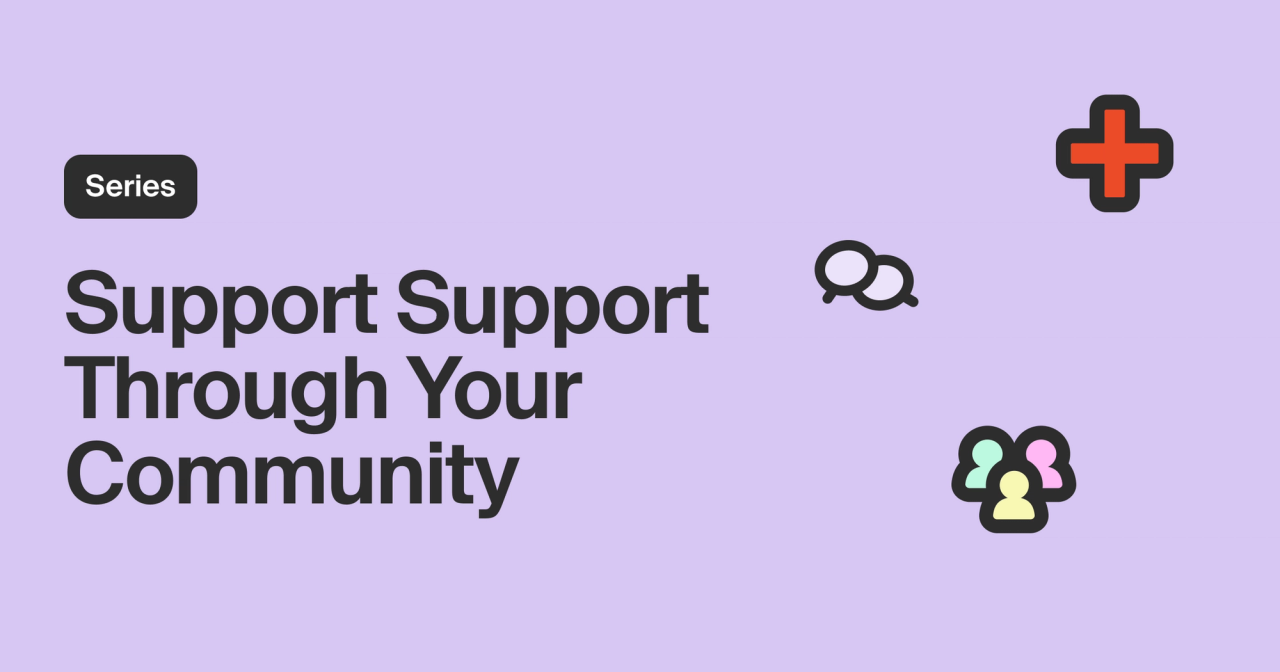It can be incredibly difficult to successfully support any software product when the needs of your users surpass the resources you have to respond to them. Supporting open source software is often even more challenging without the right community structure.
The best part about an open source community is the same thing that lies at the heart of all communities: your customers can help make your product better.
Most founders don’t realize that their contributors and users are also some of the best people to write documentation, explain how to use the product, and provide actionable feedback on how to make it better.
Instead of leveraging community members to reply to support requests, you should use them to create content that deflects the need for support to begin with.
Elevate community members to provide support
Engaging and elevating your community helps to deflect support from your team. When you implement ways for your community to proactively support each other, your internal support team will be less overwhelmed.
Providing a platform for key community members to contribute provides a sense of ownership and authority. In turn, this increases engagement and moderation.
Be sure to make community contributions public knowledge and your open source community will naturally grow 3-4x its current size. As you grow, remember to bring in fresh leaders to add credibility for those developers and more support for your team.
Find every opportunity to give your community leaders credibility and clarity around how they can help your team the most. When you educate and provide resources to your community leaders, you will see even more success.
Consider elevating your community members through:
- Moderation programs
- Advocacy programs
- Gamification opportunities
- Other incentivized programs
Solve the root problem
The reason for support is usually deep within your support solution data. Do the research to find ways you can minimize problems for your users.
What topics are commonly asked about? What support requests can be turned into documentation?
Sure, you can use your community to scale your support, but solving the root problems will make for a better customer experience. It also allows you to leverage your community members for growth and education instead of support.
Common reasons for support
- Lack of documentation, frequent topics not covered
- Lack of inspiration, lacking code examples or use-cases
- Lack of clarity, messaging and marketing is not clear
- Product is lacking, constantly solving the same problems for multiple users
- Broken features, poor product experience
Elevate community members to contribute content
Spend time authentically engaging with fellow community members. Instead of asking community members to answer support requests, elevate them to help you cover key topics in various content forms to deflect support.
Optimize and grow your team
Growing your team is not usually an option for open source products. But when the option becomes available, it’s important to grow your community team before any other department. This is also true of other types of products and startups.
Investing in your users and community first will pay itself back 10x over. Do this before worrying about growing a sales team or hiring a marketing leader. Your community will help you do both of those things. Focus on relationships.
If your current team is responsible for many different things, start to prioritize your community and relationship-driven roles. I know it’s scary to stop marketing or selling, but give it a try for a short period of time and see what the effects are.
Solve problems, scale contributions
There are a number of opportunities to deflect support from your team. I always recommend prioritizing the opportunities to automate or scale the work that leads to accomplishing your goals.
For example, if lack of documentation is causing the need for support, figure out how to get as much documentation written as possible. Ideally, this would come from outside sources, like your community members.
Solve for the root problem and scale the work through your community.
This article was originally posted on Devocate, which joined the Common Room family in August 2022. For more developer relations insights and resources, check out the Common Room blog. Learn more about Common Room’s solution for DevRel teams if you're looking for an intelligent community growth platform to educate, empower, and enable your community.
